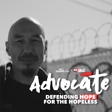
Porn Recovery & Redemption: How Churches Can Lead the Fight Against Sexual Addiction | S6, E5
In this episode of the Trafficking Free America podcast, produced by the U.S. Institute Against Human Trafficking (USIAHT) and Kids Not For Sale, we explore how to actually walk with people—especially within the church—toward healing from pornography and sexual addiction. This isn’t just about offering resources; it’s about delivering them with compassion and clarity.
Host Jeremy Hicks joins forces again with:
- Alan Teixeira, former sex buyer and group recovery leader
- David Hudson, licensed counselor and president of the Sexual Integrity Project
- Christy Collins, trauma-informed counselor for betrayed spouses
Together, they confront the realities of addiction, the failings of silence, and the hope of redemption.
⏱️ Timestamps:
00:00 – Intro: From Abuse to Recovery – What This Episode Covers
01:19 – Meet the Guests: Alan, Dave, and Christy Return
02:05 – Why Churches Tiptoe Around Porn & Addiction
04:44 – What the Church Really Wants: Tithing Units or Healing?
05:55 – The Call for Churches to Stop Tiptoeing
06:33 – The Role of Pastors: Walk With, Not Point At
08:04 – Why Many Pastors Don’t Speak Out: They’re Struggling Too
10:14 – What Happens When Pastors Find Freedom
11:01 – Don’t Wait for the Pastor: Any Man Can Lead
17:19 – How to Reach Families: Start With Talking to Kids About Sex
18:29 – Why Nobody Signs Up for “Porn Recovery” Workshops
19:21 – The “Secret Sexual Basement”: How Addicts Hide & Compartmentalize
21:14 – The “Gift of Chaos” That Leads to Change
22:27 – Making the Path to Help Softer & Private
23:44 – How the Church Can Become Safe for the Broken
25:07 – The Power of Invitation vs. Catastrophe
26:28 – How to Normalize Struggle Without Weakness
34:53 – First Step: Get Counsel Before You Confess
37:28 – The Real Consequence Isn’t Confession—It’s the Addiction
39:20 – The Pastor Isn’t the Healer—But He Can Be the Guide
40:12 – What Recovery Resources Actually Work?
41:18 – What Is the Sexual Integrity Project?
43:35 – In-Person vs. Online Recovery: What Works Best?
45:25 – Why Isolation Requires Group-Based Healing
46:48 – The Buckets of Help: Therapy, 12-Step, Groups, Intensive
57:22 – Breaking Cycles of Abuse & Trafficking
59:05 – Why Churches Won’t Host Groups (And How to Help)
01:01:31 – Child Sexual Abuse: The Root of the Sex Market
This episode is for leaders, pastors, counselors—and anyone who’s ready to move beyond silence. If we want to end sex trafficking, we must start with the demand. And that starts with recovery.
👉 Next step: Become an abolitionist at usiaht.org/abolitionist
📌 Watch, subscribe, and share this podcast to be part of the solution.
#PornRecovery #SexualAddiction #ChurchHealing #TraffickingFreeAmerica #USIAHT #KidsNotForSale #EndTheDemand #SexualIntegrity #FaithBasedRecovery

![The Best Ways to Support a Safe Home [REPLAY] | Safe Home Series, Part 4 image](https://media.zencastr.com/cdn-cgi/image/width=112,quality=85/image-files/640a1493181f834e694b13d6/20777798-06ea-438b-8fe4-26e91f8b685e.png)

